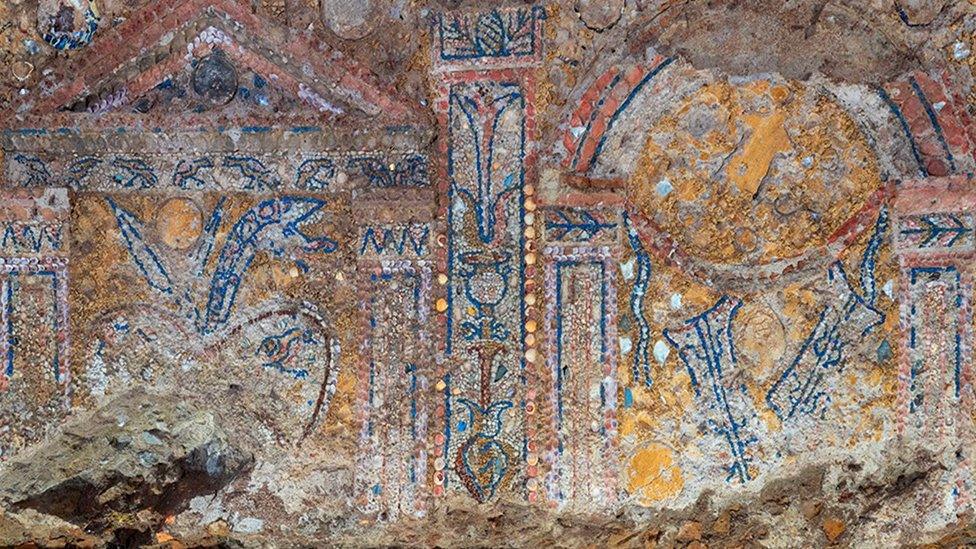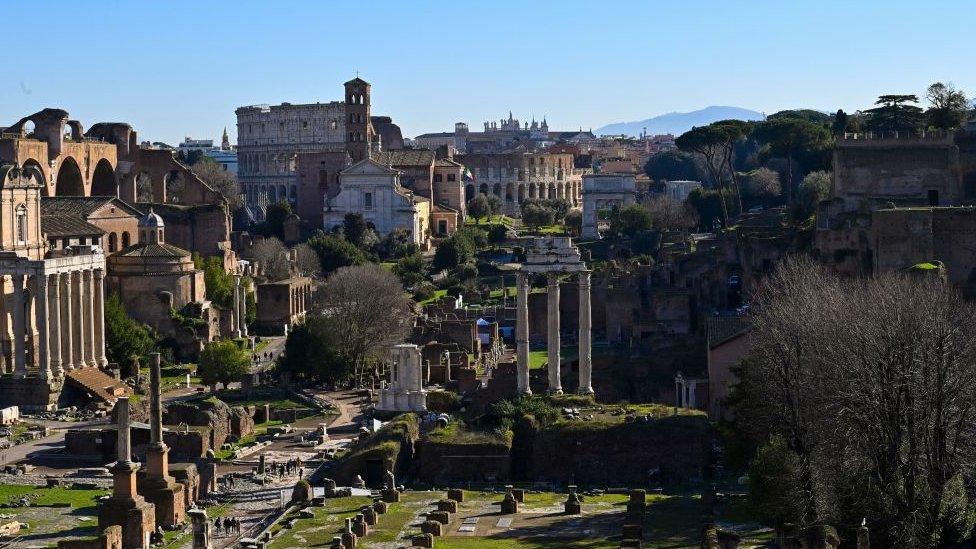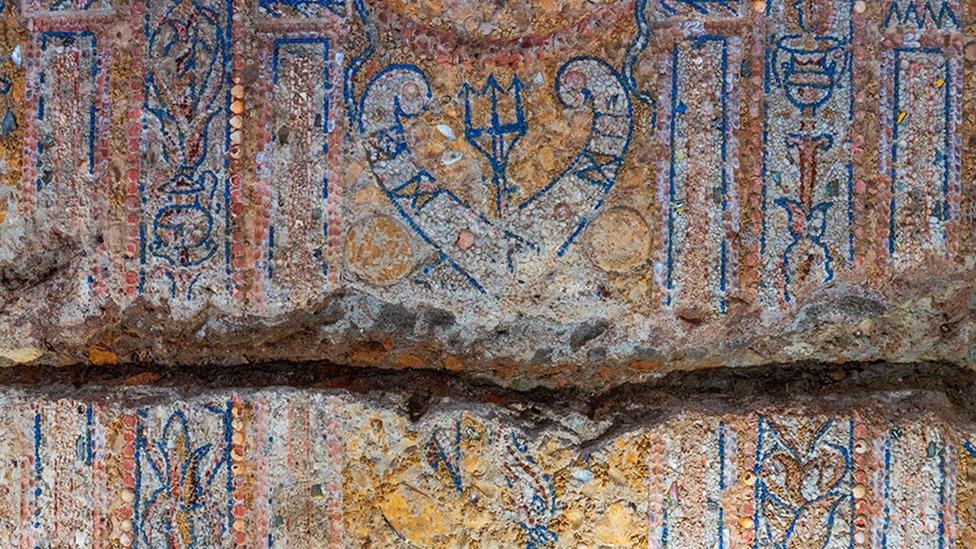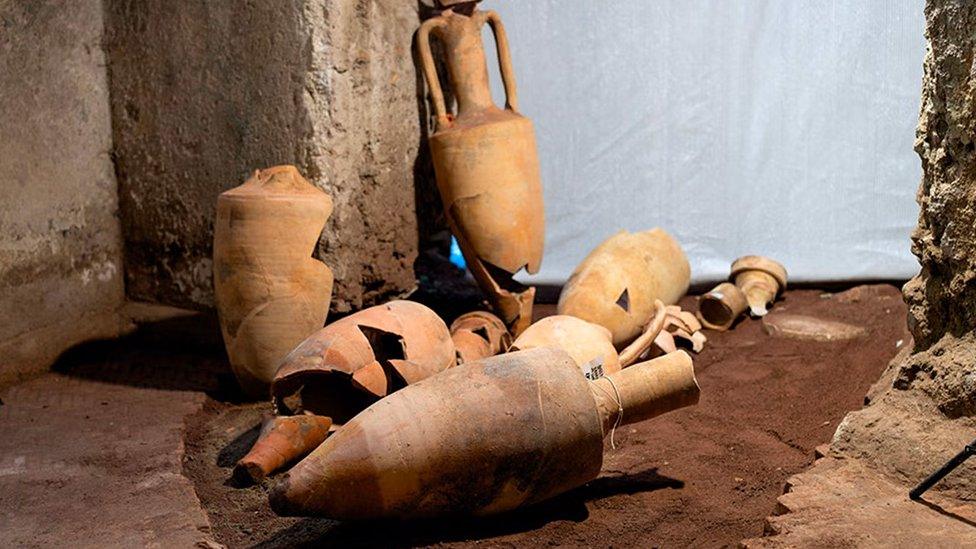Largely intact 2000-year-old mosaic found near Colosseum in Rome
- Published
- comments

The mosaic was unusually found on a wall - they're normally found on floors
A 2,000-year-old mosaic has been discovered on the wall of a building buried beneath the streets of Rome.
It's made of shells and coral and was found near the Colosseum.
The Colosseum was an ancient Roman site, and there's many other Roman landmarks nearby.
The mosaic was discovered after a long dig near Palatine Hill in Rome.
Where did the mosaic come from?

The Roman Forum is in the city of Rome, in Italy
It was found close to the Roman Forum, which is a very popular archaeological dig site. The Roman Forum was a place of daily life for people in Rome thousands of years ago, and was also home to ancient government buildings and markets.
Experts think the mosaic was a part of a mansion nearby, owned by some rich and powerful people. Normally the mosaics found by archaeologists are on the floor or people's homes, but this one was found on the wall of a building and its position perhaps explains why it was found largely intact - in one piece.
The mosaic art

Take a closer look at the art - what patterns can you see?
Taking a closer look at the mosaic, you can see some impressive artwork. A mosaic is made usually from small painted tiles, put together to make a pattern or artwork, and is painstaking artwork to create.
This one features some marine scenes - including a mixture of real and mythical creatures. There's plenty of tridents as well - a weapon often used by gladiators in the Colosseum.
These impressive decorations can explain a lot about who owned the mosaic, experts say.
Alfonso Russo, who is in charge of the Colosseum Archaeological Park, explained that rich people in Roman times would use "decorative elements as a symbol" to show off their riches and power.

During the dig, archaeologists also found these ancient Roman pots
They think the mosaic might have belonged to a Roman senator - which was a type of politician in Roman times.
It's pretty impressive the mosaic has largely stayed in one piece - usually they break or are damaged by heavier buildings above them, or by falling debris over hundreds of years.
Interestingly, the mosaic contains coral. Experts are now trying to work out where the coral came from, saying it could be from the Mediterranean, or even the Red Sea.
